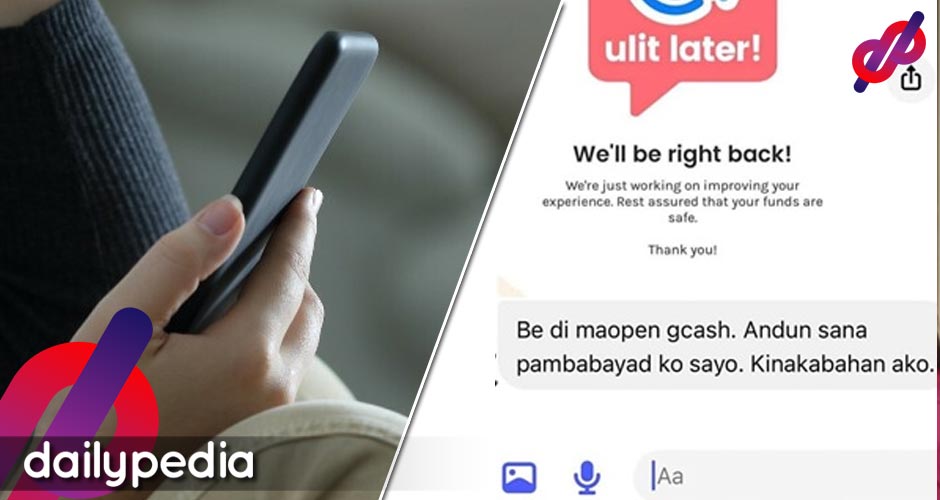A woman seems to have taken advantage of a glitch in an e-wallet app after telling her friend whom she owed money that she couldn’t pay yet because she couldn’t access the app.

She was supposed to use the app to pay off a debt that had been unpaid for a year.
According to a Facebook post by Chung Dela Cruz Ubas, the woman’s friend sent her a screenshot of the e-wallet app’s announcement regarding the glitch.
The screenshot contained a message from the woman’s friend saying, “Be di maopen GCash. Andun sana pambabayad ko sayo. Kinakabahan ako.”
In spite of this, the netizen did not believe her friend because the debt started a year ago.
GCash has assured its users that their funds are safe, and no hacking incidents have occurred.
This statement comes after some users reported that money in their accounts had been transferred to bank accounts without their authorization.
“Some customers may have experienced a deduction yesterday. We extended our scheduled maintenance to investigate and determined that no hacking occurred,” GCash wrote in a statement.
At 4:30 p.m., Gcash announced that they had corrected the e-wallet balances of the affected users. They also reiterated that no funds were lost. Furthermore, they stated that the app is now operational again, after being down for several hours.
The company also advised its users to stay alert during online transactions and never share their one-time password (OTP) and mobile personal identification number (MPIN).
In the meantime, EastWest Bank (EWB) stated that it had responded swiftly to reports of unauthorized cash transfers from GCash to a particular alleged EWB account.
EWB stated, “Rest assured that EastWest is cooperating with authorities and other institutions involved in the said report and working towards the immediate resolution of the matter.”
Yesterday, GCash was a trending topic on Twitter as users reported difficulties accessing the digital platform. Some users expressed their disappointment online, claiming that they did not receive any notification or OTP yet unauthorized bank transfers still occurred.


